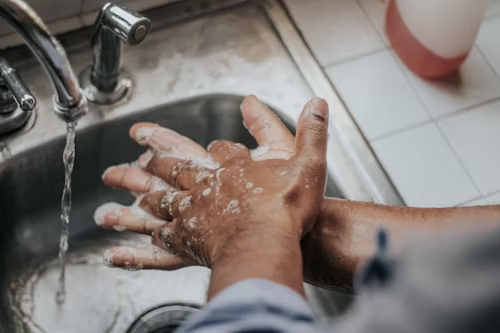If you’re dealing with water spots on your dishes, limescale buildup in your kettle, or dry skin after showering, the culprit might be hard water. Understanding the difference between hard water vs. soft water can help you make better decisions for your home and health, especially if you live in New Zealand, where water hardness varies widely by region.
Hard Water vs Soft Water: What’s the Real Difference?
The debate between soft and hard water begins with the presence of minerals. Hard water contains higher concentrations of calcium and magnesium, while soft water has little to no. These differences might seem minor, but they can have a big impact on your home and body.
Here’s how they differ:
- Hard Water: Leaves residue and buildup on appliances and fixtures
- Soft Water: Better for your skin and hair, but it can feel “slippery” when washing
- Hard Water: Can reduce the efficiency of water heaters and dishwashers
- Soft Water: Extends the life of plumbing and appliances
- Hard Water: May cause dry skin and dull hair with frequent exposure
Understanding these differences helps homeowners choose the proper filtration or treatment solutions. If you’re unsure about the type of water in your home, consider getting it tested by a local plumbing professional like UR Plumber.
Is NZ Water Hard or Soft? What You Need to Know
A common question among Kiwis is: Is NZ water hard or soft? The answer depends on where you live. Water hardness in New Zealand varies significantly by region due to differences in geology and water sources.
In most cases, urban areas in New Zealand tend to have soft water, especially where the supply comes from surface water sources. However, rural areas drawing from underground bores or wells may experience higher mineral content. If you’re unsure about your area, we can help you determine your water quality and recommend the best treatment systems.
Is Auckland Water Hard or Soft? Why It Matters for Your Plumbing
One of the top searches from Auckland homeowners is: Is Auckland water hard or soft? Fortunately, most of Auckland enjoys soft water, thanks to the city’s reliance on rain-fed reservoirs and surface water catchments. This means fewer limescale issues and better efficiency from your appliances.
Here’s why that’s important for your plumbing:
- Soft water reduces mineral buildup inside pipes
- It improves the lifespan of hot water cylinders and taps
- You’ll spend less on descaling products
- Soap and detergent work more effectively
- Skin and hair feel cleaner and less dry
Even though Auckland’s water is generally soft, homes using rainwater tanks or bore water may still experience harder water conditions. A consultation with UR Plumber can help determine if water softeners or filters are needed to protect your plumbing system.
Soft Water vs Hard Water: Which One Is Better for Your Home?
When comparing soft water vs hard water, the winner depends on your priorities, but most homeowners find soft water more beneficial in the long run. While hard water isn’t unsafe to drink, it can cause unwanted side effects over time.
Advantages of soft water include:
- Less wear and tear on plumbing and appliances
- Reduced energy bills due to improved heater efficiency
- Cleaner dishes and laundry
- Better lather and performance from soaps and shampoos
- Fewer limescale issues in kettles, showerheads, and taps
If your home has hard water, installing a filtration or softening system can make a big difference in convenience and cost.
Conclusion
Knowing whether you have hard water or soft water is more than just a curiosity; it directly affects your plumbing, appliance life, energy bills, and even your personal care routines. In New Zealand, water hardness isn’t consistent, so it’s essential to test your home supply.
Soft water is usually preferred for comfort, cleanliness, and efficiency, but if you’re in an area with hard water, it’s worth addressing the issue sooner rather than later. Ignoring it may lead to higher maintenance costs down the road.
Need Help with Water Quality? Contact UR Plumber Today!
Is your water causing problems in your home? Call UR Plumber at 027 856 7712 for expert advice and professional solutions tailored to your region.
Browse our online store for high-quality plumbing and filtration products:
Frequently Asked Questions
What causes water to be hard or soft?
Water hardness is caused by the presence of minerals, mainly calcium and magnesium. Water that travels through limestone or chalk picks up more minerals, making it hard. If you’re unsure about your water type, UR Plumber can help you identify it and recommend the proper treatment solution.
Is New Zealand water hard or soft overall?
Is New Zealand water hard or soft? It depends on your location. Major cities like Auckland and Wellington have mostly soft water, while regions with groundwater sources may have harder water. For tailored advice, UR Plumber offers water testing and filtration system installations across NZ.
Can hard water damage my plumbing?
Yes, over time, hard water can cause limescale buildup in pipes, reduce the efficiency of appliances like water heaters, and lead to costly repairs. UR Plumber provides water treatment options to help you avoid these problems and keep your plumbing running smoothly.
How can I tell if I have hard water?
Signs of hard water include soap scum in your bathroom, white spots on dishes, limescale buildup in your kettle, and dry skin after showering. If you notice these issues, contact UR Plumber for a home water assessment and treatment recommendations.
Should I install a water softener?
If you have hard water, installing a water softener can protect your plumbing, extend appliance life, and make everyday cleaning easier. UR Plumber can assess your home’s needs and install the right water softening system, backed by expert support and local experience.

